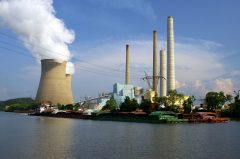Power and privilege to burn fossil fuels and escape environmental outcomes
There are clear interactions between economic implications of industrial development and environmental quality, considering income distribution, population size and pattern of growth in income rate (Selden & Daqing, 1994, p.148). Specific to Beijing, the means to respond to impacts of CO2emissions are available mainly to people with high incomes. By removing themselves from areas of heavy CO2 emissions, people of this class ranking are able to prevent and treat health issues related to air pollution. Wealth also increases the influence and leverage held over policy makers to respond to Beijing’s fossil fuel dependency.
Along these lines, underprivileged working class citizens in Beijing have been disproportionately affected by environmental hazards of fossil fuel emissions with little to no power to remove themselves from their situations or fight for policy change. Mortality rates have been shown to positively correlate to concentrations of industrial air pollution in the atmosphere. In comparing various areas in the city of Beijing, some residential areas were more disproportionately affected than others (Xiping et al., 1994, 217). The effects of Beijing’s fossil fuel dependency experienced a good deal more by the working class has kept them from actively responding. Powerless, they are forced to support the system of irresponsible environmental destruction and accept the impacts.
Bibliography:
Seldon, T. & Daqing, S. (1994). Environmental quality and development: is there a kuznets curve for air pollution emissions? Journal of Environmental Economics and Management, 2, 147-162.
Xiping, X., Dockery, D., Gao, J., & Chen, Y. (1994). Air pollution and daily mortality rate in residential areas of Beijing, China. Archives of Environmental Health, 49(4), 216-222.
